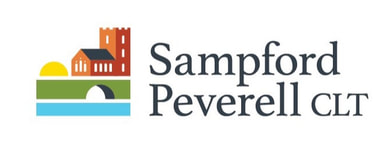What is a CLT?
Community Land Trusts (CLTs) are being set up across the country to help provide affordable homes and services for local people. By forming a partnership with a Housing Association, the CLT can lead the housing project and generate a long-term income whilst being protected from the risks involved. The community then has a financially viable Trust able to take on future projects for the benefit of that community. The main features about this new way of doing things are:
- Land ownership. The CLT can secure the housing site in perpetuity for the community (with an option to take on full ownership of the properties from the Housing Association should the CLT ever wish to do so). The CLT will enter into a long term lease with the Housing Association and have an influence over important things like layout, design and occupancy.
- Affordable Homes for rent for Local People. Those with a strong local connection – through living or working in the parish, or having family there – have priority for the housing. This is enshrined in a legally binding agreement between the Council, the Housing Association and the Community Land Trust.
- Access to grant funding. The creation of the CLT enables access to grant funding to be obtained for community led housing schemes.
- Financial viability. The CLT obtains an income from ground rents sufficient to cover the Trust’s running costs and provide a small income for other projects. The Trust is therefore financially sustainable.
- Potential for other projects.
The priority is land for affordable housing – using the current housing needs survey to establish number and mix. However, the scope of the Trust provides a vehicle for the CLT to own, develop and protect other property and land (e.g. to provide assets important to that community - community enterprises, food growing, community gardens or workspaces, for example).
- It's democratic. The Trust is a democratic organisation - with membership open to anyone supporting its objectives.
There are now over 500 Community Land Trusts in England and Wales, and the sector is still growing rapidly.
There is more information about CLTs at the National CLT Network's website here:
http://www.communitylandtrusts.org.uk
- Land ownership. The CLT can secure the housing site in perpetuity for the community (with an option to take on full ownership of the properties from the Housing Association should the CLT ever wish to do so). The CLT will enter into a long term lease with the Housing Association and have an influence over important things like layout, design and occupancy.
- Affordable Homes for rent for Local People. Those with a strong local connection – through living or working in the parish, or having family there – have priority for the housing. This is enshrined in a legally binding agreement between the Council, the Housing Association and the Community Land Trust.
- Access to grant funding. The creation of the CLT enables access to grant funding to be obtained for community led housing schemes.
- Financial viability. The CLT obtains an income from ground rents sufficient to cover the Trust’s running costs and provide a small income for other projects. The Trust is therefore financially sustainable.
- Potential for other projects.
The priority is land for affordable housing – using the current housing needs survey to establish number and mix. However, the scope of the Trust provides a vehicle for the CLT to own, develop and protect other property and land (e.g. to provide assets important to that community - community enterprises, food growing, community gardens or workspaces, for example).
- It's democratic. The Trust is a democratic organisation - with membership open to anyone supporting its objectives.
There are now over 500 Community Land Trusts in England and Wales, and the sector is still growing rapidly.
There is more information about CLTs at the National CLT Network's website here:
http://www.communitylandtrusts.org.uk

